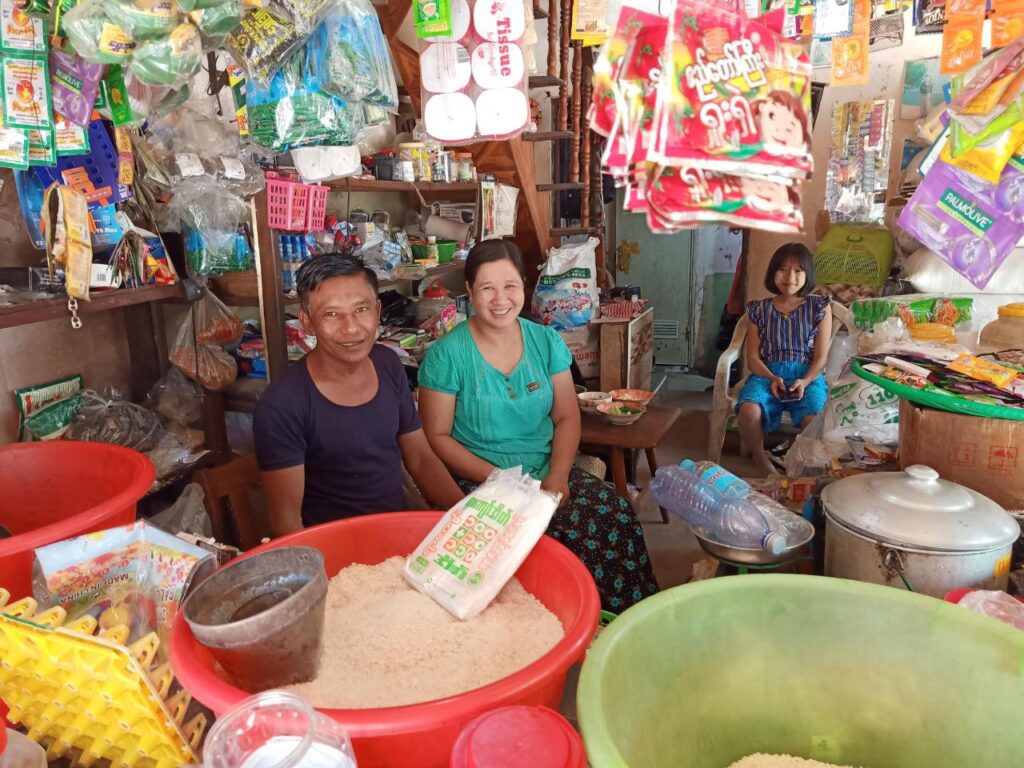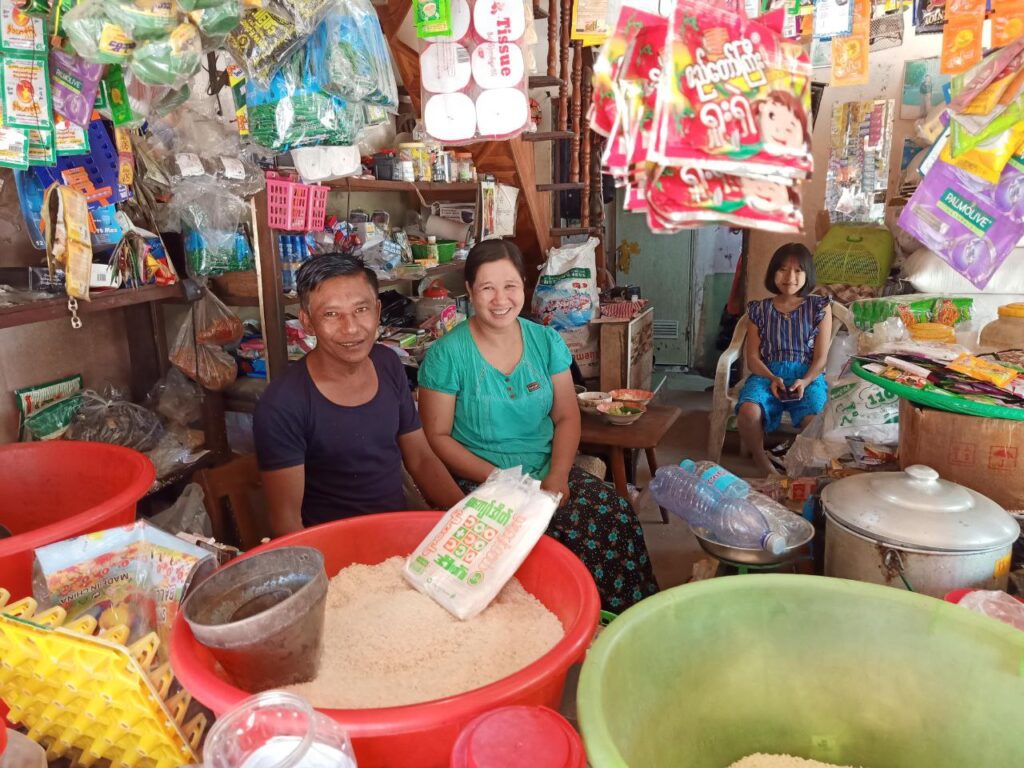Daw Lae Lae Khaing, a business owner in the Shwe Pyi Thar Township, Myanmar, said that she surprisingly doesn’t have any challenges in getting supplies amidst the COVID pandemic. Even though her regular suppliers were running out of stock she had the brilliant idea of looking for an alternative source of supplies. Since the pandemic started, she only managed to sell masks regardless of other emergency supplies. She also sells cooking oil and rice. However, the price of cooking oil got higher while the price of rice remains the same. Since there was no interruption in the supplies of basic commodities, she doesn’t have any idea why the price of cooking oil increased. She now needs to sell cooking oil at a higher price since she had to spend more on buying it.
All the transactions in her shop were in cash, and as usual, there were a number of people who bought groceries on credit. Credit takers pay her back once they get their salary by the end of the month. Selling on Credit was not charged due to COVID-19; It is as usual.
There wasn’t that much of a big change when it comes to the number of customers that frequented her shop. Although she did lose a few customers when factories closed due to the pandemic. A change was observed in the general price of commodities though with the prices of rice, cooking oil, and curry powder (MSG) showing a significant increase. The regular price of curry powder was 500 kyats (0.27 USD) but it increased to 1000 kyats (0.54 USD). This means the price doubled within a short time.
Normally, the shop’s working hours are 6 AM to 9 PM but during the lockdown, the working hours had to change to 6 AM to 7 PM as Daw had to close early. While many shops closed up during COVID, she kept her business open on all working days. She had to do this because only a small number of her customers could afford to buy groceries in bulk in advance to save them for a week. Most of her customers have to buy groceries on a daily basis. She says that even though there is a decrease in sales, it hasn’t affected her family as much.
Daw Lae Lae Khaing has another source of income which is renting out a room. Since their marriage, she and her husband used to live in his parents’ house. During that period they were thinking of starting a retail shop and for that, they started to save their money. They received an inheritance from her mother-in-law 9 years ago. Using that inheritance, they bought the land they have now and built their current house. They also had some money left so they bought another small land. After they bought this land, Daw identified an opportunity, that people are looking for rooms, and she thought it would be a good idea to sell the extra land and buy an adjacent piece of land next to the previous one. This extended land allowed her to build another house and run it as a renting-out business. The couples work together in the grocery shop and use their second source of income to make ends meet.
Another major cost that a lot of people have to deal with is public transportation cost. Daw and her husband don’t have this cost but they do have a petrol cost since they use their motorbike to transport supplies.
During COVID-19, Daw and her husband maintained social distance and arranged sanitizers and other protective equipment for both the customers and them. They only started using that protocol when the number of COVID cases went higher than normal. She didn’t prepare anything to survive during the extended period of COVID-19. The only thing she cared about was her family. She wanted to invest more to buy more products to meet the needs of the customers. Since she started the business, she didn’t have to face a hard time in business as the customers were coming by themselves. She didn’t even need any marketing.
The main challenge Daw is facing currently is to pay the tuition fee of her son since he wants to be a Seaman. The tuition fee is too high and she doesn’t have any saved-up money. She uses the money from these income sources for business expenses, personal expenses, and her son’s tuition fees. All in all, she does whatever she can to make sure that she and her family survive this difficult time.


